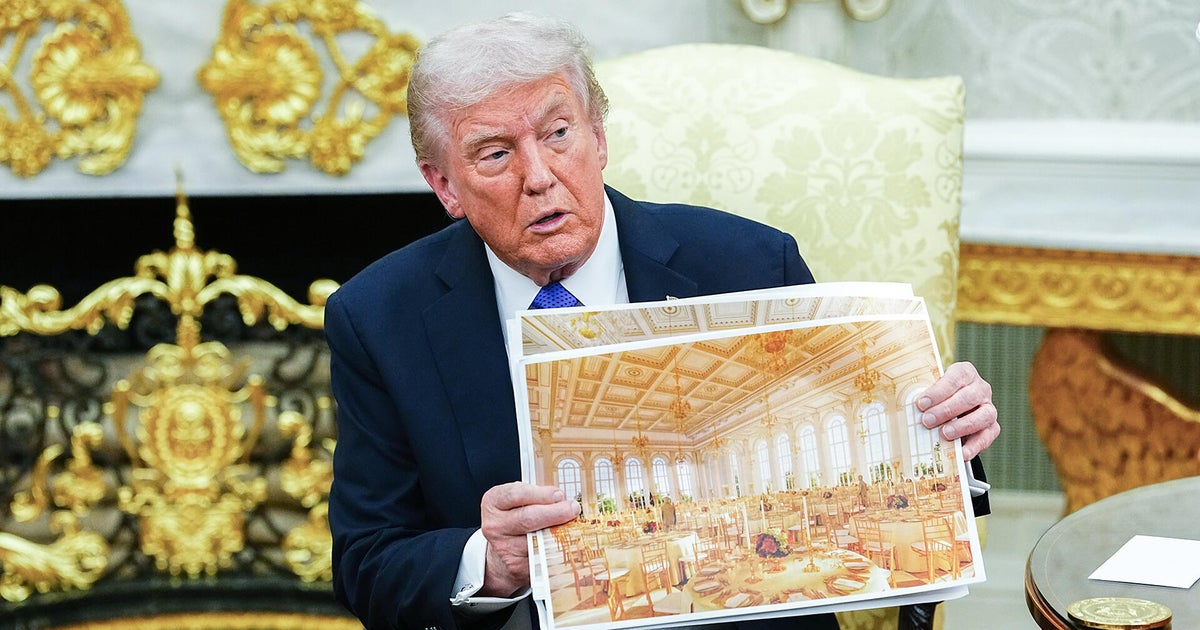Kim Jong-un believes Trump is "different," State Dept's intelligence arm assesses
It's likely that North Korean leader Kim Jong-un continues to adhere to a deep-seated belief that the United States is seeking regime change in North Korea, but he is less convinced Washington will take military action and believes President Donald Trump is "different," according to Ellen McCarthy, Assistant Secretary of State for the Bureau of Intelligence and Research (INR).
"I can't say whether or not [Kim] likes or dislikes [President Trump], we don't know that," McCarthy said. "But we definitely [have] assessed that he does look at the president and thinks this one is different."
As head of INR – the oldest all-source U.S. intelligence agency, and among the smallest, within the 17-member community – McCarthy leads a cadre of about 250 analysts at the State Department who provide assessments to the secretary of state, relevant policymakers and the president.
North Korea is an area where it's "particularly hard" to arrive at a fulsome intelligence assessment, McCarthy said. "We're really relying on media analysis and other intelligence to get a sense of – in terms of Kim Jong-un – how he thinks of us."
But she added, "I would say that, based on our understanding of the media and things that he has said, he really does think that the U.S. is looking for regime change, and that he does not believe we'll take military action, and that – I think he thinks – we cheat on agreements, and that we're not necessarily to be trusted in that regard."
In an interview with Intelligence Matters host and CBS News senior national security contributor Michael Morell, McCarthy, who assumed her current post in January after more than two decades spent in a variety of roles in the intelligence community and private sector, said the "different relationship" Kim and Trump have forged may have lessened Kim's suspicions about certain U.S. objectives.
"I think in general, when you look at all these world leaders, they all think that [regime change is] what we want, and frankly that has been a goal in many of our previous operations," McCarthy said. "I don't know if that is as heavy on [Kim's] mind as it was in the past," she said.
Trump and Kim's most recent face-to-face meeting took place late last month in the demilitarized zone separating the two Koreas, roughly 30 hours after president Trump first tweeted an offer to "say Hello" to Kim. Once they shared a handshake, and to Kim's apparent glee, Trump became the first sitting U.S. president to, in about 20 paces, cross into North Korean territory.
While the three-hour visit generated worldwide headlines and wall-to-wall television coverage, it was unclear whether Trump's meeting yielded any more substantive progress in the nuclear talks, which have been stalled since the failed February summit in Hanoi.
And despite the consistently warm rhetoric exchanged by the two leaders, U.S. intelligence assessments about Kim's willingness to give up his nuclear weapons program remain unchanged. The 2019 Worldwide Threat Assessment said the intelligence community "continues to assess that [North Korea] is unlikely to give up all of its WMD stockpiles, delivery systems, and production capabilities."
"My sense is that that's still very much where our analysts lie," McCarthy said.
"But if all the intelligence is suggesting that this is what the intelligence says, we will give it to the policymaker," she continued. "If they don't agree, they get to do that."
"[A]n analyst is not losing a moment of sleep because of it, because it's our job to feed them the intelligence," McCarthy told Morell. "It's their job to develop the policy."
This conversation is part of a continuing Intelligence Matters series on "Leadership of the IC." For much more from Michael Morell's conversation with Ellen McCarthy, you can read the transcript here and subscribe to "Intelligence Matters" here.




